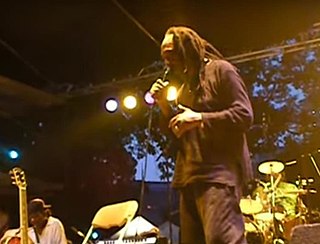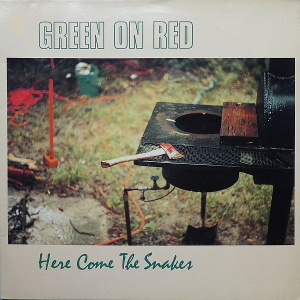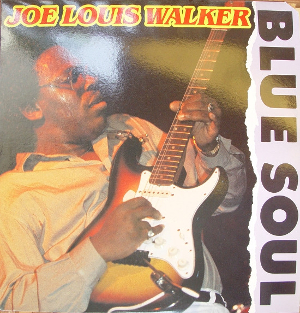
Zimbabwean music is heavily reliant on the use of instruments such as the mbira, Ngoma drums and hosho. Their music symbolizes much more than a simple rhythm, as the folk and pop style styled music was used as a symbol of hope for Zimbabweans looking to gain independence from Rhodesia. Music has played a significant role in the history of Zimbabwe, from a vital role in the traditional Bira ceremony used to call on ancestral spirits, to protest songs during the struggle for independence. The community in Zimbabwe used music to voice their resistance to their oppression, as one of the only weapons they had available to fight back with. In the eighties, the Music of Zimbabwe was at the center of the African Music scene thanks to genres such as Sungura and Jit. However, several performers were banned by state TV and radio leading to the closing of several music venues.

Thomas Tafirenyika Mapfumo is a musician nicknamed "The Lion of Zimbabwe" and "Mukanya" for his immense popularity and for the political influence he wields through his music, including his sharp criticism of the government of former Zimbabwean president Robert Mugabe. He both created and made popular Chimurenga music, and his slow-moving style and distinctive voice is instantly recognisable to Zimbabweans.
Chimurenga is a word in the Shona. The Ndebele equivalent is not as widely used since most Zimbabweans speak Shona; it is Umvukela, meaning "revolutionary struggle" or uprising. In specific historical terms, it also refers to the Ndebele and the Shona insurrections against administration of the British South Africa Company during the late 1890s, the First Chimurenga—and the war fought between African nationalist guerrillas and the predominantly-white Rhodesian government during the 1960s and the 1970s, the Rhodesian Bush War, or the Second Chimurenga/Imvukela.

Peace in Our Time is the fourth studio album by Scottish band Big Country, released in 1988.

Stuck in Wonderamaland is the third album by the American band Dramarama, released in 1989. "I Wish I Was Your Mother" is a cover of the Mott the Hoople song. The band supported the album with a North American tour. "Last Cigarette" was a minor rock radio hit.
Shona music is the music of the Shona people of Zimbabwe. There are several different types of traditional Shona music including mbira, singing, hosho and drumming. Very often, this music will be accompanied by dancing, and participation by the audience. In Shona music, there is little distinction between the performer and the audience, both are often actively involved in the music-making, and both are important in the religious ceremonies where Shona music is often heard.

Positively Phranc is an album by the American musician Phranc, released in 1991. Phranc promoted the album by touring with Morrissey. Phranc was dropped by Island Records after the album's release.

Djam Leelii is an album by the Senegalese musicians Baaba Maal and Mansour Seck, released in 1989. It was recorded in 1984. A 1998 reissue from Palm Records raised the number of tracks to twelve.

Chris Berry is an American singer, songwriter, and musician. He plays the mbira and the ngoma drum, from the Shona people of Southern Africa. His records with the band Panjea have gone platinum in Zimbabwe and Mozambique. He has released over a dozen albums; scored the soundtrack for three films; and collaborated and performed with many other artists.
Jonah Sithole (1952–1997) was a Zimbabwean guitarist, vocalist and composer, known particularly for the mbira-inspired style known as mbira-guitar or chimurenga music.

From the Ladle to the Grave is the third album by Minneapolis Celtic rock band Boiled in Lead. It was the band's first recording with drummer Robin Adnan Anders, whose influence helped push the band further beyond Celtic rock into explorations of other world traditions. These included Bulgarian, Russian-Jewish, and Turkish music, as well as their version of The Hollies’ “Stop! Stop! Stop!” which interpolated a traditional Egyptian melody. The song "Cuz Mapfumo" simultaneously paid tribute to Chicago-based Irish musician Cuz Teahan and Zimbabwean Thomas Mapfumo.

The Prophets is an album by the Ivorian musician Alpha Blondy, released in 1989. He is credited with his band, the Solar System. Blondy sang in French, Dioula, Arabic, and English.

Edge of Allegiance is the third album by the American band Timbuk 3, released in 1989.

Silent Assassin is an album by the Jamaican musicians Sly and Robbie, released in 1989 via Island Records.

Toots in Memphis is an album by the Jamaican reggae musician Toots Hibbert. Released in 1988, Toots in Memphis was recorded without the Maytals. The majority of the album's tracks are covers of American R&B songs.

Here Come the Snakes is an album by the American alternative rock band Green on Red, released in 1989.

Unity is an album by the rap and reggae musician Shinehead, released in 1988.

Blue Soul is an album by the American musician Joe Louis Walker, released in 1989. Walker supported the album with a North American tour, backed by the Boss Talkers.

Chamunorwa is an album by the Zimbabwean musician Thomas Mapfumo, released in 1991. He is credited with his band, Blacks Unlimited. The title translates to What Are We Fighting For. Chamunorwa was Mapfumo's final album for Mango Records.

The Gift is the second album by the American musician Joe Louis Walker, released in 1988. Walker was backed by the Boss Talkers. He supported the album with a North American tour.

















